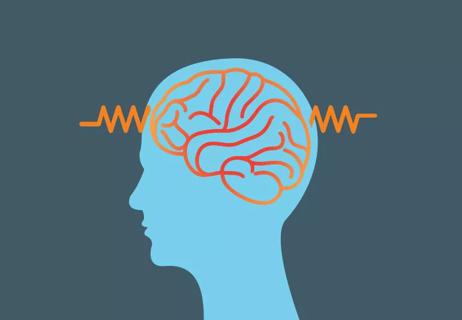Older adults are fastest-growing epilepsy population

The fastest-growing segment of epilepsy patients in the United States is over age 65, and their condition is potentially difficult to diagnose.
Advertisement
Cleveland Clinic is a non-profit academic medical center. Advertising on our site helps support our mission. We do not endorse non-Cleveland Clinic products or services. Policy
One reason is that seniors often don’t experience epilepsy symptoms until these later years, and they rarely have convulsions.
Instead, they have different, more understated symptoms, says epileptologist Andreas Alexopoulos, MD.
These symptoms include:
“When older adults have a seizure, their symptoms may in fact be mistaken for dementia, including Alzheimer’s disease, depression or just normal aging,” Dr. Alexopoulos says.
Seniors tend to develop focal epilepsy, which impacts only a small portion of the brain. As a result of seizure activity in their brain, they may become anxious all of a sudden or be unaware of their surroundings or they may simply stop and stare.
“The symptoms are more subtle than at other times of life. They may develop unusual episodic sensations, such as hearing or seeing things, or experience sporadic memory loss or confusion.”
Also, while people may not associate seizures and epilepsy with seniors, the truth is that the rate of epilepsy among people over age 65 is two to three times that of younger adults.
If you are taking care of an aging parent or loved one and notice these symptoms, it’s important to have a doctor take a closer look.
Advertisement
Nearly half of all seizures in older adults have unknown causes. Among the conditions we know cause epilepsy, the primary one is stroke.
“Moreover, if an older person develops a seizure, it can be a warning sign of a potential stroke later on,” Dr. Alexopoulos says. He says about one-third of seizures in people over age 65 are related to stroke disease.
Other less common causes of epilepsy include Alzheimer’s disease, trauma, tumors, uremia, hyperglycemia, hypoglycemia, hyponatremia, alcohol withdrawal or infection.
Epilepsy is tougher to treat in seniors than in younger patients, Dr. Alexopoulos says. Yet making the correct choice of a medication that is well tolerated and effective can be very rewarding.
Seizures in most seniors can be fully controlled with appropriate medical management, he says. They already may have other health problems, and this makes their chronic epilepsy treatment more complicated.
Also, they may take other medications, which raises the chances of dangerous drug interactions. And their slower metabolism can mean more side effects from anti-seizure medications. This means that older adults are less likely to be compliant with their epilepsy medications.
“Non-compliance is the most common cause of breakthrough seizures,” Dr. Alexopoulos says.
When a person of any age receives an epilepsy diagnosis, it can disrupt an independent lifestyle and restrict driving. For elderly people, their risk of falls and broken bones also increases.
Dr. Alexopoulos says the key is to work closely with each patient and make changes to balance independence and safety until the seizures are under control.
“Assuming they’re doing well and controlling their seizures, epilepsy doesn’t preclude them from living independently and having a fulfilling life,” he says.
Advertisement
Learn more about our editorial process.
Advertisement

The truth about an often misunderstood condition

‘Ictal pouting’ is subtle sign of frontal lobe seizures

Epilepsy expert discusses latest research, side effects and FDA guidance for use

Déjà vu makes you feel like you’ve lived this moment before, even though that’s impossible — and it may have a neurological cause

Most recommended precautions center around minimizing bruising or swelling

Even one drink can have an impact on your cognitive function leading to slurred speech, blurred vision and impaired memory

Type 2 diabetes isn’t inevitable with these dietary changes

Applying a hot or cold compress can help with pain